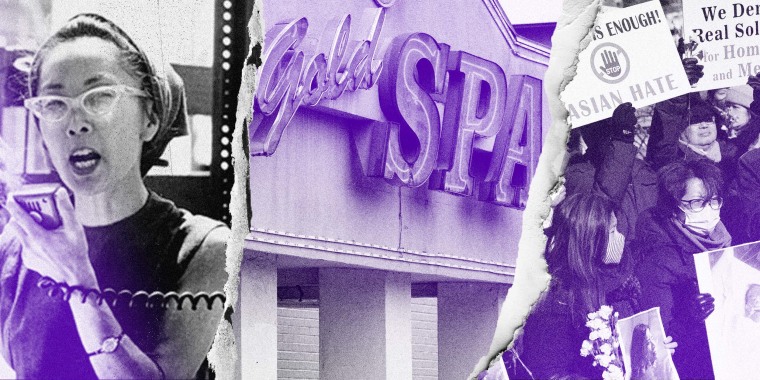A year ago, a killer traveled to three Atlanta-area massage businesses and fatally shot eight people. Six of the slain victims were women of Asian descent.
Police said the suspect, a man named Robert Aaron Long, told them that the guilt he felt for watching porn and paying for sexual acts had motivated him to kill. Police said he blamed the victims for his inability to control his impulses.
Long has pleaded guilty to murdering four of the victims and not guilty in the deaths of the four others.
For America’s racial and ethnic minorities, salvation will come through solidarity.
His dehumanization of his mostly Asian victims — his reducing them to fixtures in his wretched life story — came during a spike in anti-Asian crimes. The number of reported anti-Asian hate crimes in the U.S. increased by 339 percent last year compared to the year before. Experts have said this surge was likely due in part to racist stereotypes amplified by former President Donald Trump during the Covid pandemic.
And anti-Asian violence and harassment have continued into 2022.
In New York alone, we’ve seen several highly publicized incidents of anti-Asian hate.
There was the killing of Christina Yuna Lee, the 35-year-old woman found dead in her bathtub last month with more than 40 stab wounds. And Michelle Go, the 40-year-old woman who police say was killed in January by a man who pushed her into an oncoming subway train. And the seven Asian women who were attacked over two hours in New York City this month. And the Asian woman who was spit on and punched 125 times in an attack in Yonkers last week.

These attacks hark back to the murder of Balbir Singh Sodhi, the Sikh American whose killing on Sept. 15, 2001, was the first hate crime murder to follow the 9/11 attacks. In Sodhi’s murder and in so many of the brutal attacks on Asian Americans in recent years, racists rushed to generalize and inflict harm under the guise of patriotism. And as a Black man, I know failing to condemn these attacks is both a moral failure and a strategic one. For America’s racial and ethnic minorities, salvation will come through solidarity.
I’m motivated by others who feel this way. That was the impetus for my post celebrating Mari Matsuda, the Asian American activist and legal scholar who famously spoke out against people trying to drive a wedge between Asian Americans and Black people.
I’ve been similarly inspired by the late Japanese American activist Yuri Kochiyama. She was a close ally of Malcolm X who helped inspire his work with multiracial coalitions.
Kochiyama and her family were forced into internment camps when the U.S. government rounded up Japanese Americans after the bombing of Pearl Harbor, Hawaii, in 1941. She shared her memories of the experience in a 1991 essay titled "Then Came the War." Her insights are prescient:
You could see the hysteria of war. There was a sense that war could actually come to American shores. Everybody was yelling to get the 'Japs' out of California. In Congress, people were speaking out. Organizations such as the Sons and Daughters of the Golden West were screaming 'Get the “Japs” out.' So were the real estate people, who wanted to get the land from the Japanese farmers. The war had whipped up such a hysteria that if there was anyone for the Japanese, you didn’t hear about it. I’m sure they were afraid to speak out, because they would be considered not only just 'Jap' lovers, but unpatriotic.
I don’t want my complicity to ever be memorialized in such a shameful way. I won’t be gripped by that hysteria. And I know that means demanding — emphatically — an end to anti-Asian hate.
The prosecutor in the county where Long pleaded guilty said last year that investigators found no evidence of racial bias in the murders he committed there. But the prosecutor in the county where Long pleaded not guilty said she believes the killings were clearly motivated by the gender and race of the victims. That seems obvious from my vantage point — and to so many others continuing the fight against Asian hate one year on.
Related:
